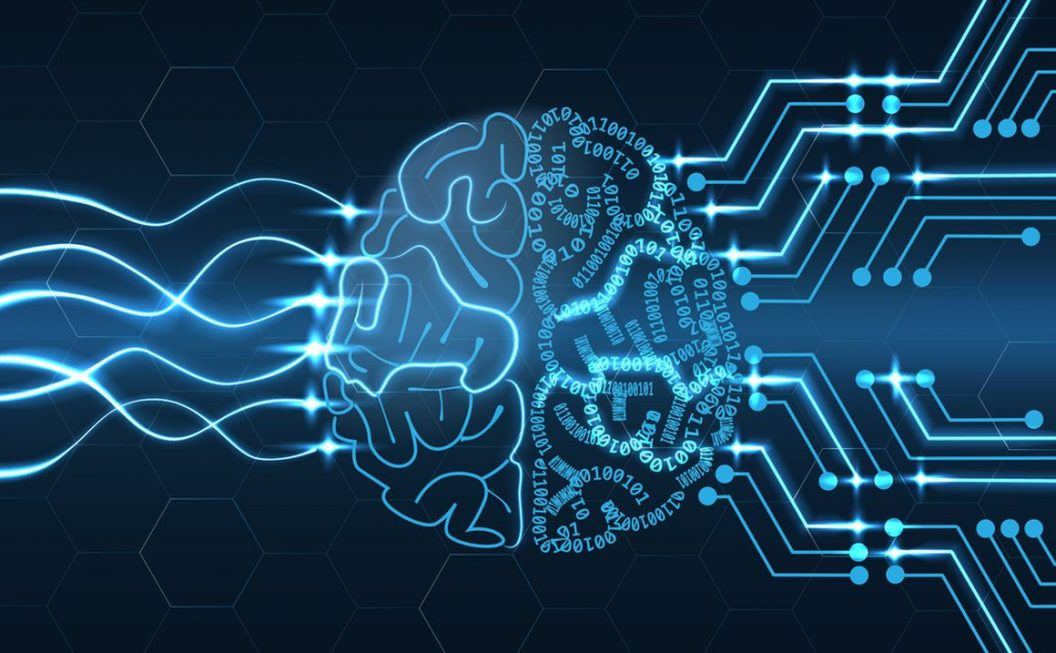Knowing the difference between a platform powered by AI and one powered by cognitive computing is the key to deciding which is the best for your business. IBM’s Watson cognitive computing platform might be going through a defining time right now, and part of that seems to do with a small-but-complex question: What is the difference between artificial intelligence (AI) and cognitive computing?
copyright by www.rtinsights.com
 It’s an important question for any company and any system that’s working within this sector, as our assumptions about these two terms define how we respond to the emerging and existing products that claim to do one or the other. If you don’t know the difference between a platform powered by AI and one powered by cognitive computing, and what the implications of those differences, how can you decide which is the best for your business or your application? First, some brief definitions of these two types of machine thinking.
It’s an important question for any company and any system that’s working within this sector, as our assumptions about these two terms define how we respond to the emerging and existing products that claim to do one or the other. If you don’t know the difference between a platform powered by AI and one powered by cognitive computing, and what the implications of those differences, how can you decide which is the best for your business or your application? First, some brief definitions of these two types of machine thinking.
Artificial intelligence: making computers do intelligent things
Artificial intelligence agents decide which actions are the most appropriate to take, and when they should be taken. These agents most often take the form of machine learning algorithms, neural networks, statistical analysis and more. You feed the AI information — oftentimes, over a long period of time so that it can “learn” the variables it should pay attention to and the desired outcomes — and it spits out a solution.
Cognitive computing: solving problems with humanlike thinking
Cognitive computing is often described as simply marketing jargon, so crafting a working definition is important, although it’s more fluid right now, and there isn’t one consensus that industry experts have settled on. Still, the foundation is that cognitive computing systems try to simulate human thought processes.
Aren’t cognitive computing and AI the same thing?
They’re close, but there are some fundamental differences. First, artificial intelligence does not try to mimic human thought processes. Instead, a good AI system is the simply the best possible algorithms for solving a given problem — in the case of an autonomous car, avoiding collisions and staying on course. It’s not trying to process the same data in the same way as the human brain — that’s a far more complex and more fault-prone system. And, an autonomous car isn’t just making suggestions to the human driver. It’s the one doing the driving. And second, cognitive computing does not make decisions for humans, but rather supplements our own decision-making. In medicine, a true AI would instead be making all the decisions about how to treat a patient, essentially cutting the doctor out of the equation. The reason cognitive computing is important is because there’s genuine evidence that machine learning can supplement human medical diagnoses, but no one would argue that AI should handle all our medical decisions right now. […]
read more – copyright by www.rtinsights.com


Knowing the difference between a platform powered by AI and one powered by cognitive computing is the key to deciding which is the best for your business. IBM’s Watson cognitive computing platform might be going through a defining time right now, and part of that seems to do with a small-but-complex question: What is the difference between artificial intelligence (AI) and cognitive computing?
copyright by www.rtinsights.com
Artificial intelligence: making computers do intelligent things
Artificial intelligence agents decide which actions are the most appropriate to take, and when they should be taken. These agents most often take the form of machine learning algorithms, neural networks, statistical analysis and more. You feed the AI information — oftentimes, over a long period of time so that it can “learn” the variables it should pay attention to and the desired outcomes — and it spits out a solution.
Cognitive computing: solving problems with humanlike thinking
Cognitive computing is often described as simply marketing jargon, so crafting a working definition is important, although it’s more fluid right now, and there isn’t one consensus that industry experts have settled on. Still, the foundation is that cognitive computing systems try to simulate human thought processes.
Aren’t cognitive computing and AI the same thing?
They’re close, but there are some fundamental differences. First, artificial intelligence does not try to mimic human thought processes. Instead, a good AI system is the simply the best possible algorithms for solving a given problem — in the case of an autonomous car, avoiding collisions and staying on course. It’s not trying to process the same data in the same way as the human brain — that’s a far more complex and more fault-prone system. And, an autonomous car isn’t just making suggestions to the human driver. It’s the one doing the driving. And second, cognitive computing does not make decisions for humans, but rather supplements our own decision-making. In medicine, a true AI would instead be making all the decisions about how to treat a patient, essentially cutting the doctor out of the equation. The reason cognitive computing is important is because there’s genuine evidence that machine learning can supplement human medical diagnoses, but no one would argue that AI should handle all our medical decisions right now. […]
read more – copyright by www.rtinsights.com
Share this: